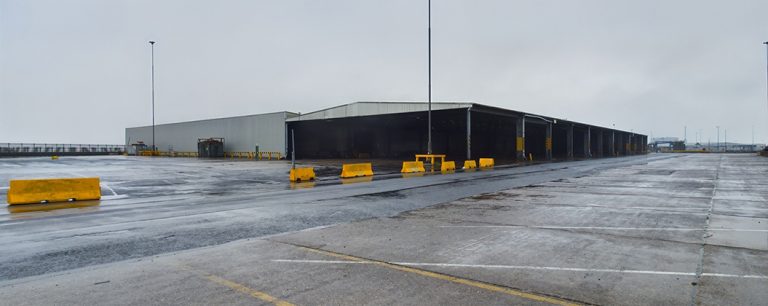LATEST ARTICLES
Plans for new ‘container-style’ leisure attraction take step forward at Leeds Kirkgate Market
Major letting at Port of Hull welcomes chemical giant
York workshop focuses on enhancing communication to attract and retain talent
Two York-based professionals are offering local business leaders a practical opportunity to improve their communication strategies and strengthen employee engagement. Karen Tinkler, a PR expert, and Michelle Mook, an employee engagement specialist, are hosting a free, half-day workshop on 11 September 2025, designed to help businesses build an appealing internal culture and employer brand.
The workshop will explore how businesses can leverage their brand, story, and culture to stand out in a competitive job market. Attendees will learn actionable strategies for improving external messaging to attract the right candidates and how to implement communication techniques that boost employee retention and satisfaction.
Research suggests poor communication contributes to low employee engagement, a key challenge for many employers. This session will offer solutions to address these issues and increase motivation and productivity across teams.
The event will take place at Pro-Development’s office at Forest Farm Business Park in York. Registration is open to business leaders interested in taking steps to create a stronger, more engaging workplace.
Harworth Group sees steady growth amid challenging UK market
Harworth Group has reported strong operational performance in the first half of 2025, despite a sluggish UK economy and challenges in the residential property sector. The company continues to make significant progress towards its long-term strategic goals, with a focus on developing sustainable industrial, logistics, and residential projects.
In the first half of 2025, Harworth made key acquisitions, adding 0.4 million sq ft of industrial space and 2,000 residential plots to its portfolio. This included taking full control of Gateway 45 in Leeds, a strategic site for future development. The company has also advanced its residential sales, completing 649 plots, with another 1,593 in the pipeline.
The company’s industrial and logistics (I&L) portfolio remains robust, with strong demand for 1.2 million sq ft of land and property, despite longer transaction timelines. Harworth’s commitment to developing high-quality sites is evident in its ongoing infrastructure projects, including 4.1 million sq ft of enabling works and infrastructure across 2025.
One of the key developments is Harworth’s new strategic partnership with the Church Commissioners for England to deliver a significant mixed-use project in West Yorkshire. The site will provide 1.2 million sq ft of employment space and 1,500 residential plots.
Despite macroeconomic pressures, Harworth’s land bank continues to grow. With a focus on I&L and residential sectors, the company is set to capitalise on key growth areas supported by government policy. The group is also investing in biodiversity solutions, with the launch of its first registered Biodiversity Gain Site, addressing upcoming legislation on biodiversity net gain.
Harworth remains on track to meet its goal of achieving £1bn in EPRA net disposal value (NDV) by 2027, and £0.9bn in its investment portfolio by 2029.
Xenia Estates expands with new regional office in Bradford
Leeds aims to lead UK health innovation sector outside the Golden Triangle
Leeds is positioning itself as a key player in the UK’s health research landscape, focusing on improving health outcomes, addressing health inequalities, and driving economic growth. The Leeds Teaching Hospitals NHS Trust has unveiled a five-year plan aiming for £140 million in research activity by 2030, a 40% increase from previous goals.
The strategy aligns with the Government’s NHS ten-year vision, supporting shifts in healthcare delivery, including moving care from hospitals to communities and enhancing prevention efforts. Central to this plan are 350 industry partnerships and a renewed focus on the commercialisation of NHS innovations, aimed at boosting the regional economy.
The Trust’s Innovation Village, housed in the repurposed Old Medical School, will become a hub for life sciences businesses. Additionally, the Trust is investing in staff training, with 1,250 people set to gain expertise in research and innovation, ensuring a workforce that contributes to cutting-edge discoveries.
With health inequalities a significant challenge, the strategy focuses on digital advancements, health data, AI, and innovations in therapeutics and diagnostics. The Trust is also set to recruit 100,000 research participants, including 10,000 from community settings, ensuring research is accessible to those in need.
Leeds’ growing international partnerships, such as collaborations with Flatiron Health, have already led to breakthroughs in digital pathology and anonymised data research, positioning the city as a leader in healthtech innovation.
This strategy underscores Leeds’ ambition to become a global hub for health research, creating jobs, attracting investment, and shaping the future of healthcare both regionally and internationally.
Historic Sheffield building secures funding for transformation into music hub
A major step has been taken in transforming Sheffield’s Canada House into a regional music education centre, with Harmony Works Trust securing £1m from the Garfield Weston Foundation. This grant supports the ongoing redevelopment of the grade II* listed building, part of a broader initiative to create a cultural and educational space for young musicians in South Yorkshire.
The Garfield Weston Foundation, known for its extensive funding across arts, education, and community sectors, is among several key contributors. This latest pledge adds to the growing list of supporters, including The National Lottery Heritage Fund and Arts Council England, which have committed a total of £8.2m towards the project.
Despite this progress, Harmony Works Trust still requires additional funding, with over £1m needed to complete the full redevelopment and unlock the building’s potential. Once complete, the new facility will house rehearsal and performance spaces, along with education facilities aimed at nurturing the next generation of musicians.
The historic Canada House, originally built as offices for the Sheffield United Gas Light Company, has housed various businesses since its construction, including nightclubs and restaurants. Following its closure in 2011 and threat of demolition, the building was granted listed status, preserving its historic character.
Plans for the site include partnerships with organisations such as Sheffield Music Academy and Brass Bands England. Construction is slated to begin next year, with the music hub expected to open its doors in late 2027.
Hull’s regeneration grant scheme boosts city centre revival
Hull City Council has relaunched its city centre regeneration grant scheme, aiming to revitalise vacant properties and stimulate job creation. This follows the £19.5 million in government funding awarded to the council in November 2021, with £7.5 million specifically allocated to the grant initiative.
The scheme has supported 31 businesses, including ResQ, which received £750,000 to refurbish the former Hammonds of Hull building. The investment enabled ResQ to occupy four floors, adding hundreds of new jobs.
To date, the grant has restored 19 buildings and helped revitalise 14 heritage sites, occupying 18,399 sqm of previously vacant space. Close to 900 new jobs have been created, and the scheme has attracted £13 million in private investment to the city.
With limited funding remaining, the scheme has reopened for applications. New proposals will be evaluated based on their business plans and ability to deliver results.
SOCOTEC advances water quality monitoring with AI-powered system
SOCOTEC UK and Ireland has partnered with Yorkshire Water to implement an AI-based water quality monitoring system, funded through the Ofwat Water Breakthrough Challenge. This project is part of a £42 million initiative aimed at innovating water quality monitoring across the UK.
SOCOTEC will install and maintain advanced monitoring systems across Yorkshire, measuring key water quality parameters including pH, turbidity, and dissolved oxygen. Data collected from over 7,000 river samples will be used to develop AI-driven real-time alerts, designed to detect harmful bacteria at bathing sites.
This collaboration with UnifAI Technology is expected to reduce costs and time associated with large-scale bacteria monitoring, while improving safety at inland bathing sites. The solution aligns with public health and environmental protection goals by providing immediate data to water users.
SOCOTEC’s role in the project underscores its leadership in environmental monitoring, with Yorkshire Water benefiting from cutting-edge technology aimed at improving water quality assessment processes.












